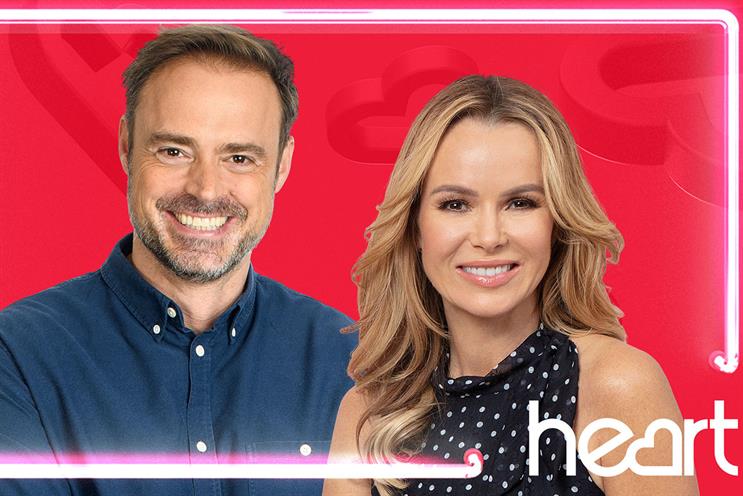
Heart has secured its place as the UK's largest national commercial breakfast show, racking up 4.6 million weekly listeners in the three months to the end of September.
The Global radio station launched the show, hosted by Amanda Holden and Jamie Theakston, nationally in June after axing 22 regional programmes. The strategy appears to have paid off, with Heart leapfrogging stablemate Capital to take the top spot, according to the latest Rajar figures for the third quarter.
Chris Evans, meanwhile, attracted a further 4,000 listeners to his new Virgin Radio advertising-free breakfast show in the third quarter, totalling an audience of 1.4 million.
Evans joined Virgin after leaving as host of the BBC Radio 2 breakfast show at the end of last year, handing over the reins to Zoe Ball.
Radio 2's programme has the largest audience of any breakfast show with 7.9 million listeners, but it has been losing audience since Evans left. Listener numbers dropped in the third quarter by 10% compared with an audience of 8.8 million in the same period last year.
Bauer’s Kiss breakfast show also saw numbers dip year on year in the third quarter, falling from 1.9 million to 1.5 million.
Overall radio market
The total number of people listening to radio dipped slightly over the third quarter to 48.5 million from 48.7 million in the same period last year. The average hours of listening per head also dropped slightly to 18 hours, from 18.7 hours.
Commercial radio stations, however, outperformed the BBC to secure a 0.3% year-on-year audience increase to 35.9 million. Growth was driven by the success of national (as opposed to regional) commercial stations, which gained a 6% year-on-year increase in listenership.
Data for all BBC stations, meanwhile, showed that listeners fell 2.6% year on year.
Siobhan Kenny, chief executive of Radiocentre, said: "With radio continuing to hold the nation’s attention against increasing competition in the news and entertainment sectors, it’s great that commercial radio continues to grow audience.
"This is down to the variety of stations and programming on offer, as well as investment in listening in the digital era. It’s a good time for listeners – and a good time for advertisers to look at what radio can do for their brands."



.jpg)
.jpeg)
